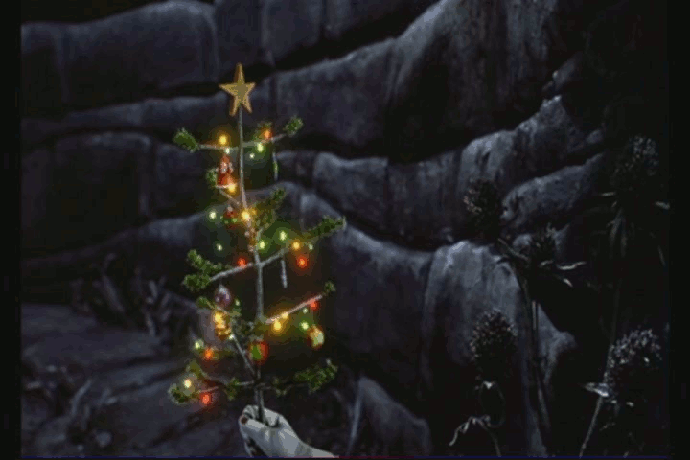As Americans celebrate Halloween, the Ways and Means Committee is taking a moment to warn about the estate tax, also known as the death tax and nightmare of our broken tax code. This unfair tax hurts our economy and puts unnecessary pressure on families and small businesses. After Americans have paid taxes on income all their lives, this an additional tax on those same assets imposed at death. And often times, small family–owned businesses, farms, or ranches are hit the hardest. That is why House Republicans have proposed a better way forward on tax reform, which includes our plan to repeal the death tax. Check out our list below to find out why we must finally bury this terrifying tax once and for all.
1. It is the wrong tax at the wrong time
In Halloweentown, three siblings rebel against their parents and run away with their grandmother, only to discover their magical family heritage. The children are proud of their grandmother’s legacy and want to build upon it. Similarly, American families work hard for years to pass on a legacy of opportunity to their children — and our tax code shouldn’t punish them.

2. It affects people from beyond the grave
America’s tax code is a mess. It‘s way too complex and outdated. It punishes people for working, saving, investing – all the things we need to build a healthy economy. And through the death tax, it even punishes people from beyond the grave. By forcing the IRS to go after grieving families, this tax makes the IRS seem more like a ghostbuster than an agency meant to serve American taxpayers.

3. It goes after innocent families
Like the three witches in Hocus Pocus, the estate tax also has the ability to ruin families. Though the federal government is going after families’ estates and not family members themselves, in many cases, this “estate” is a small business or family farm, and a death tax bill that can kill that business only makes a family’s loss even more devastating. An over the top film for an over the top law.

4. It exemplifies federal overreach
Nightmare Before Christmas is a cautionary tale of what can happen when people insert themselves where they don’t belong. The holiday classic’s story of Halloween Town Pumpkin King, Jack Skellington, mirrors the federal government when it comes to disruptive overreach. In the film, Jack abandons Halloween, takes over Christmas, and does the holiday all wrong. Similarly, when the IRS tries to collect on a family’s assets, there is a whole host of potentially devastating outcomes. Like Jack, who was the wrong leader for the wrong holiday and created the wrong outcome – the death tax is the wrong tax at the wrong time and It hurts people with the wrong results.

5. It is counterproductive
In this Halloween classic, Beetle Juice is hired to do one job, but ends up prioritizing another. This counterproductive approach mirrors our tax code, which could help grow the economy, but instead is a serious drag on our economy. The estate tax is the poster child for this: where the tax code should support American businesses, this tax targets the small, family-owned businesses our nation was built on. Like Beetle Juice, this law is outdated, unwise, and needs to go.

6. It is unfair
Creepy and kooky, mysterious and spooky…sound familiar? Like The Addams Family, the death tax also is creepy by going after the recently deceased. It is kooky in its unfair treatment of first and second generation farms and businesses, forcing those generations to liquidate tools and/or land just to pay the bill from the IRS. And it definitely is mysterious and spooky because it is hard to understand why the government goes after families when they are most vulnerable.

7. It is disturbing
While the thriller Disturbia keeps you wondering just how it’s going to end, the estate tax is less suspenseful. Spoiler alert: The truly wealthy don’t pay it. Those who can afford it can hire expensive teams of seasoned professionals who are able to help them navigate our messy, complicated, and broken tax code. Small, family-owned farms and businesses don’t have that luxury, and therefore, will be stuck with a bill they are unable to pay.

8. It punishes family businesses
In Young Frankenstein, the mad scientist’s grandson inherits his estate and continues his experiments. Unfortunately, many Americans don’t have this same opportunity. After Americans have paid taxes on income all their lives, the death tax is a tax on those same assets when they’re transferred to the next generation after a person’s death. If the Frankensteins had been hit with the death tax, the family would have had to liquidate the lab and there would be no happy ending.

9. It isn’t a good source of revenue
In Monsters, Inc. Mike and Sulley are focused on scaring kids because they believe the screams keep their society running. This is similar to the death tax, which some believe our country needs as a source of revenue. In the film, it becomes clear that once the monsters stop to consider the effects of their actions, they realize that scaring children isn’t the best source of power. This is similar to the federal budget, because the truth of the matter is that the revenue collected from the estate tax represents less than one percent of federal revenue so the death tax isn’t really a good way to feed the government.

10. It can be really scary
In Casper, a ghost expert and his daughter are hired to get rid of ghosts haunting an abandoned mansion because an heiress believes there is treasure buried inside. Like the heiress, the death tax is so focused on the reward, it completely disregards the individuals and families it affects. Though it represents just a tiny fraction of federal revenue, the estate tax’s impact on a family can be really scary.

